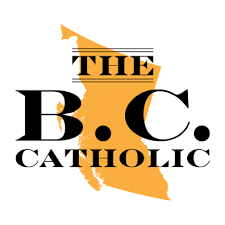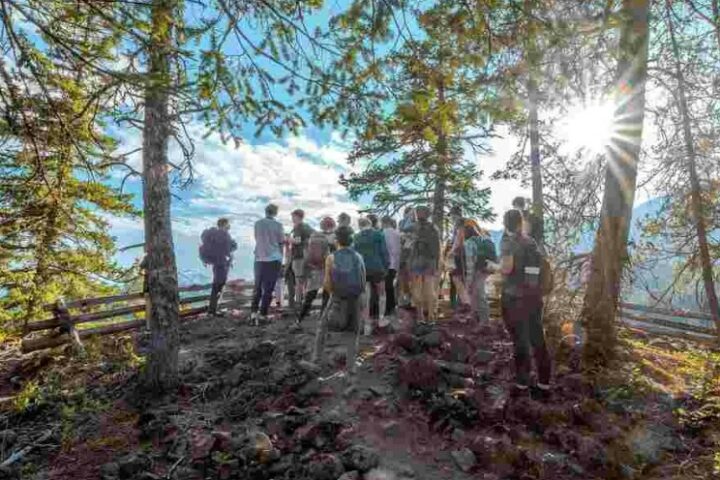A forum on Pope Francis’ papacy from a Canadian context was alive with dialogue and tough questions while also maintaining a celebratory mood as speakers from around the world gathered at St. Mark’s College to examine the significance of Francis’ pontificate.

About 40 speakers took part in Pope Francis and the Future of the Church: Prospects and Challenges for Renewal, discussing various aspects of Francis’ thought and ministry, with keynote talks looking at his commitment to Church reform and the consequences of his approach to the Church’s future.
The fact that the conference took place during the Pope’s 10th anniversary year was timely and at the same time coincidental. Planning for the forum began long before the pandemic, said St. Mark’s Dean of Theology Dr. Lynda Robitaille, and it had not been intended as a 10-year retrospective.
That may have contributed to the conference’s commemorative atmosphere, despite dialogue and critical questions that demonstrated a commitment to intellectual rigour.
“The legacy of Pope Francis is critical,” St. Mark’s Principal Gerry Turcotte told The B.C. Catholic. “He has reached out to the community at large, and he has found a way to cross through barriers that might exist.”

Francis “embodies the importance of dialogue to the community,” Turcotte said.
A New Way Forward
Dr. Massimo Faggioli, a professor of theology and religious studies at Villanova University in Pennsylvania, gave the first keynote, Laudato Si’ in a Time of Global Disruption: Francis and Politics.

Faggioli contrasted the Franciscan – Pope Francis, not Francis of Assisi – approach to ecology with the “Faustian” bargain made by the modern world in which connections to God and one another are traded for the planet’s well-being
Because of Pope Francis’ unique background – both his global south origin and his Jesuit training – Faggioli suggests he is the first Pope to understand the Church’s truly global nature. “Pope Francis shows us that you do not need to be European to be Catholic,” she told The B.C. Catholic.
In Laudato Si’, Faggioli sees a new respect for ecological concerns in Catholic thought and a novel Franciscan insistence that the environment is comprised of a three-part relationship between man, nature, and God.
Unlike the modern West’s appreciation for nature as somewhere to escape from the community, Fraggioli said Pope Francis offers an appreciation for nature as something to experience in the community with others.
Environmental problems disproportionately hurt the poor, said Fraggioli, so Laudato Si’ presents an ecological theology of people viewed through community and connection instead of contemporary views that portray them as economic, legal, and political models.
At the time of its writing, Laudato Si’ was a “high point in the prophetic nature of the Catholic Church,” said Faggioli.
Reform and the future Church
In the second keynote, Dr. Emilce Cuda, Secretary for the Pontifical Commission for Latin America. examined the nature of Church reform under Francis and his emphasis on the “preferential option for the poor.”‘
“The Church prefers the poor because Christ did,” she said. The Church’s living with the poor “does not simply mean listening,” she said. “It means giving agency and choice about money.”
Comparing Pope Francis to a sculptor, Cuda said Franciscan reforms are intended to remove the excess stone around the Church that hides the true image of Christ beneath.

“The discourse is the problem,” she said, emphasizing that the words we use to describe people affect how we approach them.
Describing foreign workers as migrants rather than workers, for example, makes it challenging to integrate them meaningfully into communities, while calling them workers emphasizes their human dignity reflected through their work.
Ultimately, Cuda believes the purpose of Franciscan reform is to make the Church a more effective witness of Christ.
The historical context of synodality
The third keynote, Leaning into the Distant Goal of Vatican II: Pope Francis and Christian Unity, was by Dr. Catherine Clifford, Professor of Systematic and Historical Theology at Saint Paul University.
The talk focused on the relationship between Pope Francis and the Second Vatican Council and how synodality will be a boon for ecumenical dialogue.
Clifford pointed out that synods are not a new Franciscan innovation and have a long history in the Church. Their original purpose was to be “a point of convergence” between separate churches.

Vatican II was revolutionary by emphasizing lay participation, setting the Church on a path toward a world where doctrinal decisions were communal, contrast to clerical.
Clifford said that by observing Pope John Paul II’s ecumenical outreach throughout his tenure, one could see his openness to evaluating the papacy within the modern world without compromising anything essential to its identity and function.
For instance, Francis believes he shouldn’t implicate himself in local concerns that the bishop could and should deal with, encouraging bishops to speak frankly and openly with their congregations.
In Clifford’s view, Pope Francis is simply continuing in the tradition set by John Paul II in which the papacy becomes a better facilitator of Church unity. The aim is not to make a new Church but to identify new ways to be the Church by moving inward toward Christ and outward to the “periphery” or marginalized.
None of this development excludes rigorous doctrinal theology, but for Francis the process should be “accompanied by heart,” said Clifford.







